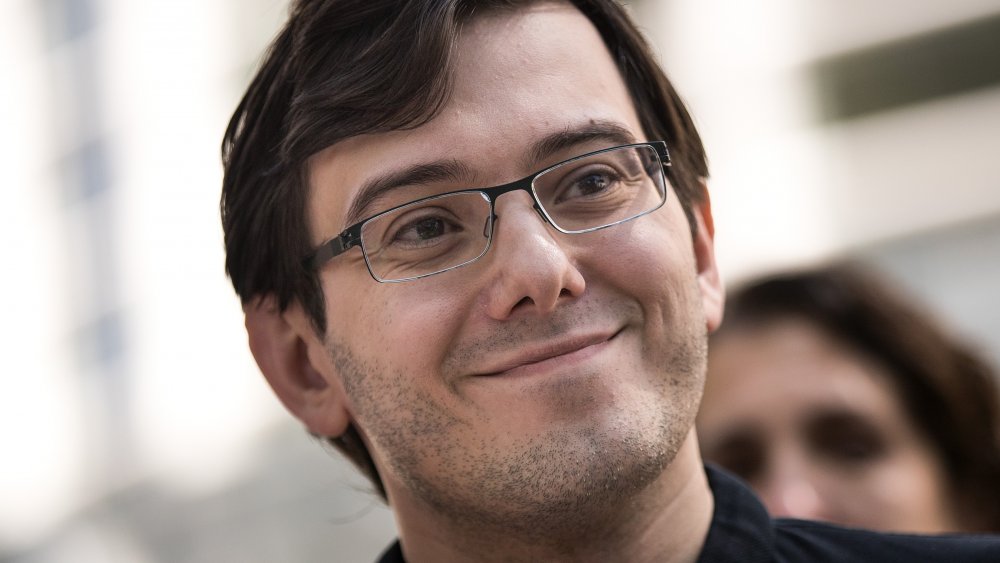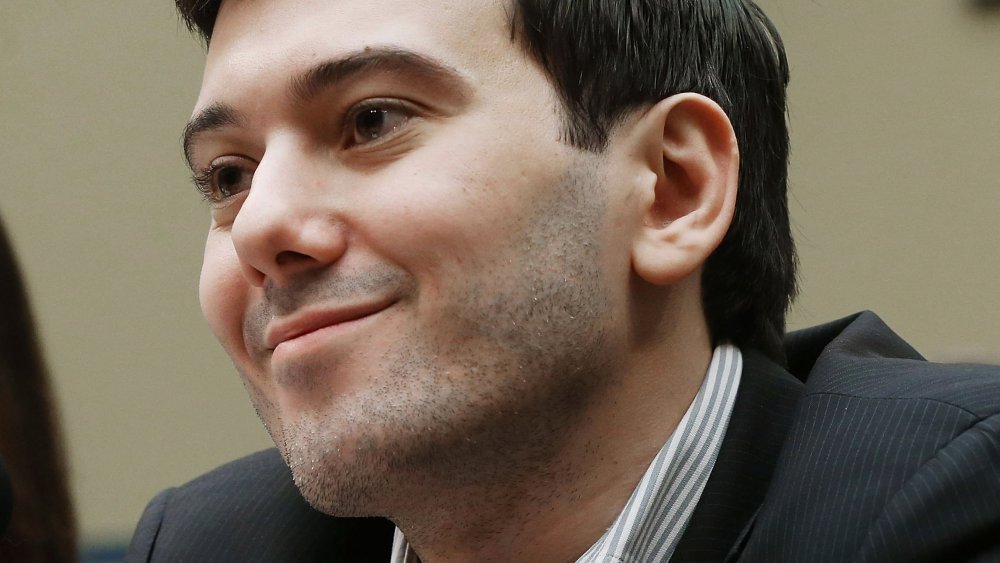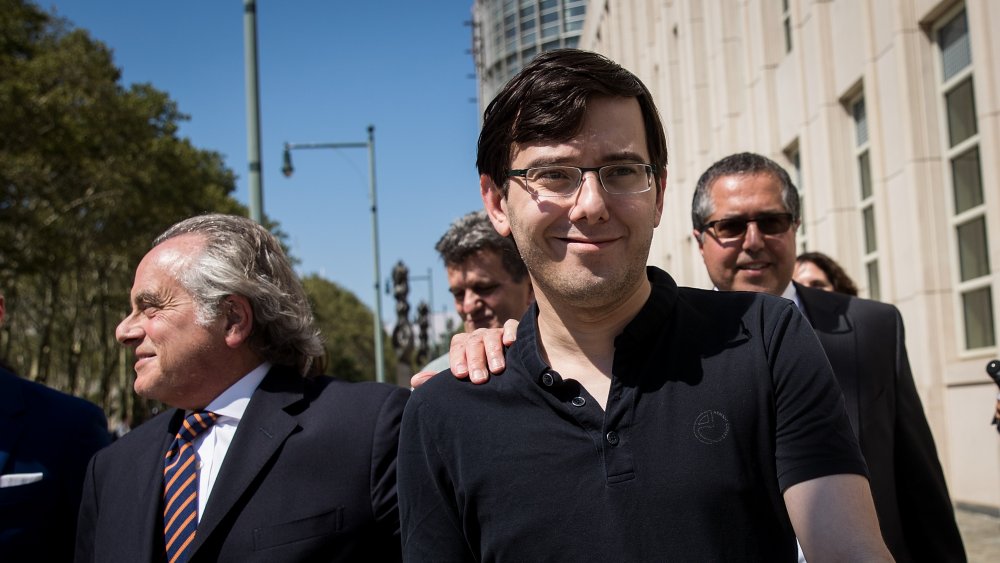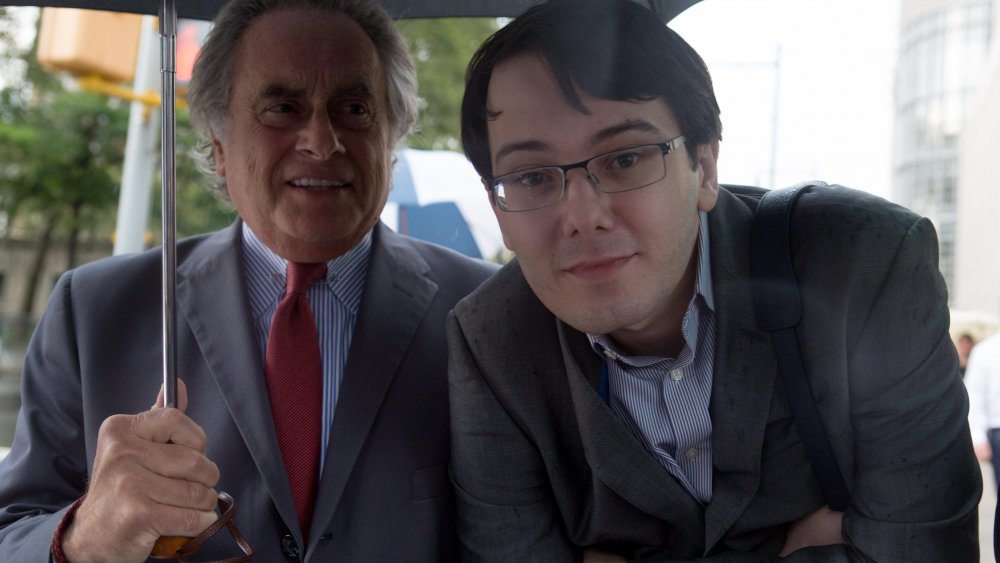What Life In Prison Is Like For Martin Shkreli
With Covid-19 turning the spotlight onto jails and prisons as of late — and the prisoners within them who are at risk for catching and spreading the disease (look no further than Tekashi 6ix9ine and YNW Melly as examples) — a retrospective of the prison system's most infamous inmates is only natural. And when it comes to infamous inmates, the name "Martin Shkreli" is one of the first to inevitably spring to mind — it's more or less become synonymous with cartoonish capitalist uber-villains. A Lex Luthor in the flesh, if you will.
While Shkreli has invariably faded a little from the public spotlight — prison will do that to you, after all — the famous fraudster has made sure to never steer too far from it. So what has Shkreli been up to these days? And what is life in prison actually like for the disgraced "Pharma bro"? Let's take a look.
What is Martin Shkreli known for?
No, Martin Shkreli isn't technically known for his patented smarm-filled smirk — not entirely, at least. While his fondness for hover boards and chess were notably captured in an on-screen interview with VICE, Shkreli is best remembered as a disgraced pharmaceutical executive who first made headlines by unapologetically hiking up the price for Daraprim, a drug used to treat AIDS-related diseases, from $13.50 per pill to $750 per pill, per The New York Times. Shkreli's refusal to lower the price of the drug — and his smug, self-congratulatory bravado he performed while speaking to the press — quickly earned him the status of a bonafide supervillain.
According to The Washington Post, the tides finally turned for Shkreli when he was arrested for securities fraud in December 2015 after it was discovered he had lured investors into a Ponzi-scheme while he was an employee at MSMB Capital Management and during his tenure at Retrophin, a company he founded. Shkreli was found guilty in 2017 and sentenced to seven years in prison, per The New York Times.
What has life in lockup been like for Martin Shkreli?
The infamous "Pharma bro" hasn't exactly been a model prisoner since his incarceration. According to a report from CNBC, Shkreli was removed from federal prison at Fort Dix, New Jersey after it was discovered that the former CEO was illegally continuing to run his company, which was renamed Phoenixus AG, with the use of a cell phone. Needless to say, prisoners are forbidden to own and/or use while in lock-up. He was subsequently transferred to the Metropolitan Detention Center located in Brooklyn before moving to his current digs — a federal prison in Allenwood, Pa.
It was definitely an unfortunate break for Shkreli. As a prison, Fort Dix is renowned for its relatively lax atmosphere — as far as prison goes — earning the moniker "Club Fed" from NJ.com, where contraband, including drugs, is plentiful, cell phone use runs rampant, and recreational facilities allow inmates to play sports such as racquetball, per VICE. Unlike Fort Dix, the Federal Correctional Complex at Allenwood is a more tightly run ship with harsher security (via Forbes).
Even now, Martin Shkreli is still scheming
Like rappers Tekashi 6ix9ine and YNW Melly, it looks like Martin Shkreli is trying to use the coronavirus pandemic as a literal get-out-of-jail-free card. According to NBC News, in April 2020, the former pharma head pleaded with a federal judge to let him out on a three-month furlough so that he can aid in researching and developing vaccines for the novel coronavirus.
"As a successful two-time biopharma entrepreneur, having purchased multiple companies, invented multiple new drug candidates, filed numerous INDs and clinical trial applications, I am one of the few executives experienced in ALL aspects of drug development from molecule creation and hypothesis generation," wrote Shkreli in a research paper in April 2020.
As it stands, the paper is not peer-reviewed and was posted by Prospero Pharmaceuticals — a business Shkreli co-founded in 2015. Others listed as co-authors include one of Shkreli's business partners and three "citizen scientists."
So is Shkreli's proposal in good faith or just another way for the infamous huckster to con the public yet again? Surprisingly, some see it as the former rather than the latter. Journalist Christie Smythe, who has been working on a biography of Shkreli and regularly visits him in prison, told Statnews that Shkreli's request is sincere, a "research project he's been working on, not for any profit motive."
Seeing as Shkreli's checkered past will most likely make the furlough unlikely, we might not ever know.




